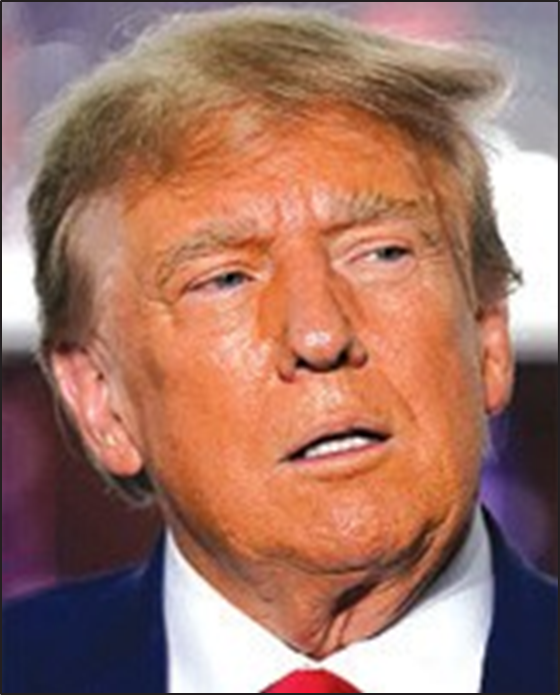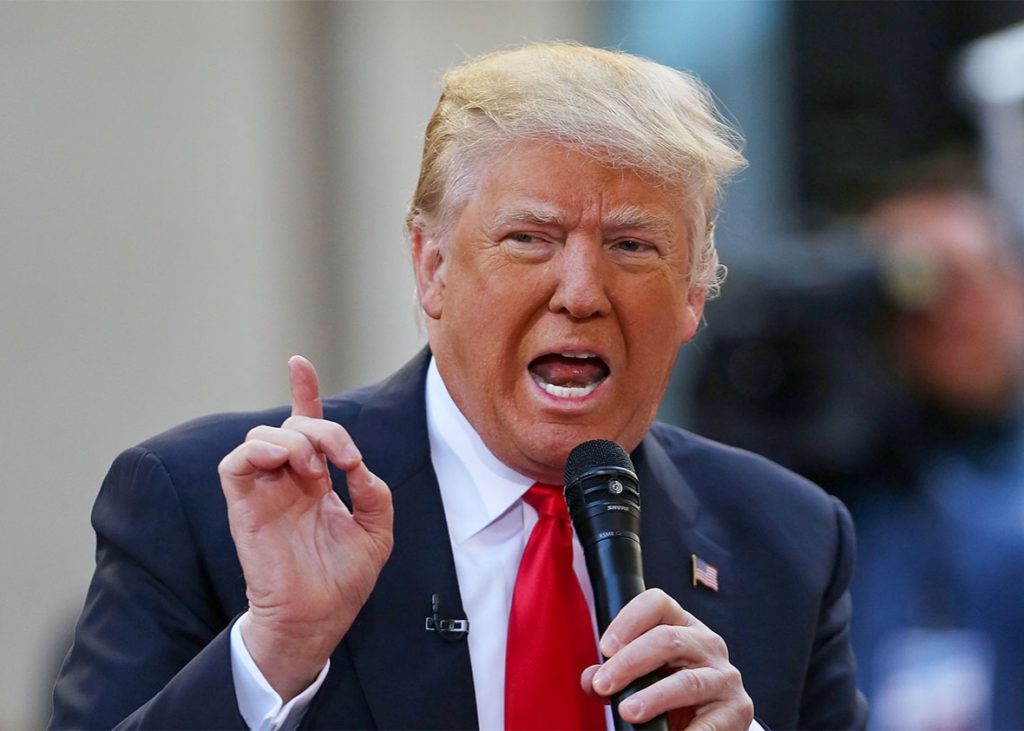July 5, 2024

They weren’t funding Hamas, and they weren’t funding anything. They weren’t funding Hezbollah.” In a June interview with Phil McGraw, the personality known as Dr. Phil, Trump said Hamas would never have launched its October attack on Israel if he had still been president, “because Iran was broke and Iran wasn’t funding Hamas and they weren’t funding any of the terrorists Hezbollah, all of them, there’s like 28 of them.” [There are 68 Foreign Terrorist Organizations listed by the State Department, but Iran is tied to only about a half dozen of them.]
In a June interview, Trump boasted he would have been able to make a deal with the Islamic Republic that would have left the regime in power and supported by the US government. “I would’ve made a fair deal with Iran. I was gonna get along with Iran,” Trump said June 20. He said, “The deal was simple. Iran can’t have a nuclear missile. It cannot have that nuclear capability. Other than that, we can talk about everything. They would’ve been very happy.” He didn’t seem to know that that was what previous administrations, both GOP and Democratic, wanted but that Iran would never agree. Trump said, “I had them at a point where you could’ve negotiated. A child could have made a deal with them.
And Biden did nothing…. They [Iran] wanted to make a deal. And Biden never took advantage of it.” CNN’s fact checkers said, “Trump’s claim that Iran wasn’t funding Hezbollah, Hamas or any other terror group during his presidency is false. Iran’s funding for such groups declined in the second half of his presidency, in large part because his sanctions on Iran had a major negative impact on the Iranian economy, but the funding never stopped entirely, as four experts told CNN.
Trump’s own administration said in 2020 [the last year of his presidential term] that Iran was continuing to fund terror groups including Hezbollah.” CNN reported that research institutions in the US and Israel said Iran’s financial relationship with Hamas actually grew stronger in 2017, the first year of Trump’s presidency, after several years of frostiness related to divisions between Tehran and Hamas over the war in Syria, where Iran supported President Bashar al-Assad while Hamas opposed him.
The Trump Administration re-imposed sanctions on Iran in late 2018, pursuing a campaign known as “maximum pressure.” But Trump’s Secretary of State Mike Pompeo said himself in 2020 that Iran was continuing to fund terror groups. “So, you continue to have, in spite of the Iranian leadership demanding that more money be given to them, they are using the resources that they have to continue funding Hezbollah in Lebanon and threatening the state of Israel, funding Iraqi terrorist Shia groups, all the things that they have done historically continuing to build out their capabilities, even while the people inside of their own country are suffering,” Pompeo said in a May 2020 interview.
Earlier that week, during a visit to Israel, Pompeo told reporters, “Even during this pandemic, the Iranians [are] using the ayatollahs’, the regime’s, resources to foment terror across the world even when the people of Iran are struggling so mightily.” Four specialists told CNN in June that Iran’s funding for Hezbollah and Hamas never vanished under Trump. “It absolutely did not and has not,” said Ali Vaez, Iran project director at the International Crisis Group. “Definitely it didn’t stop.
It decreased, yes,” said Hanin Ghaddar, senior fellow at The Washington Institute for Near East Policy. “I would say it slowed down, but it never stopped entirely,” said Colin Clarke, director of research at The Soufan Group. “Iran has never ceased funding many of its core proxy groups” such as Hezbollah, said Phillip Smyth, who studies Iran’s proxies. “They are hyper-focused on continuing these relationships and proxy building efforts.
However, sanctions do take a toll on some of their operations/abilities to build proxies.” Iran does not disclose how much money it gives to Hezbollah, Hamas and other foreign armed groups. Brian Hook, who was the State Department’s senior officer dealing full time on Iran issues under Trump, said in 2019 that Iran “has provided Hezbollah almost $700 million annually and gave more than $100 million a year to Palestinian terrorist groups like Hamas and Palestinian Islamic Jihad.”
In 2020, Hook declined to say how much less money Iran was spending on foreign activities than it had before Trump launched the pressure campaign, but he noted media reports about Iranian proxies receiving less than they had before. In 2019, The Washington Post said Iran’s financial situation had been worsened by Trump policy, such that Hezbollah had “seen a sharp fall in its revenue and is being forced to make draconian cuts to its spending, according to Hezbollah officials, members and supporters.” Reuters published a report in 2020 about how Iran had slashed its payments to Shiite militia groups in Iraq because of the impact of the US sanctions and the Covid-19 pandemic.
The State Department’s annual report on international terrorism in 2020 made clear that Iranian support for terror entities endured in the last year of Trump’s term. It said, “Iran continued to support acts of terrorism regionally and globally during 2020. Regionally, Iran supported proxies and partner groups in Bahrain, Iraq, Lebanon, Syria and Yemen, including Hizballah and Hamas,” the report, released in 2021, said.

